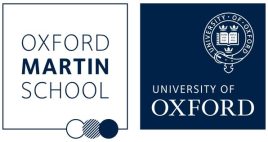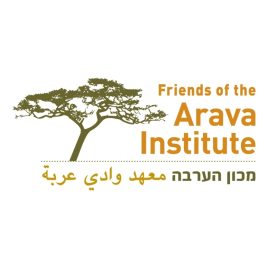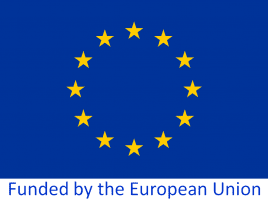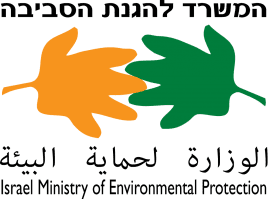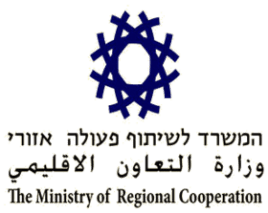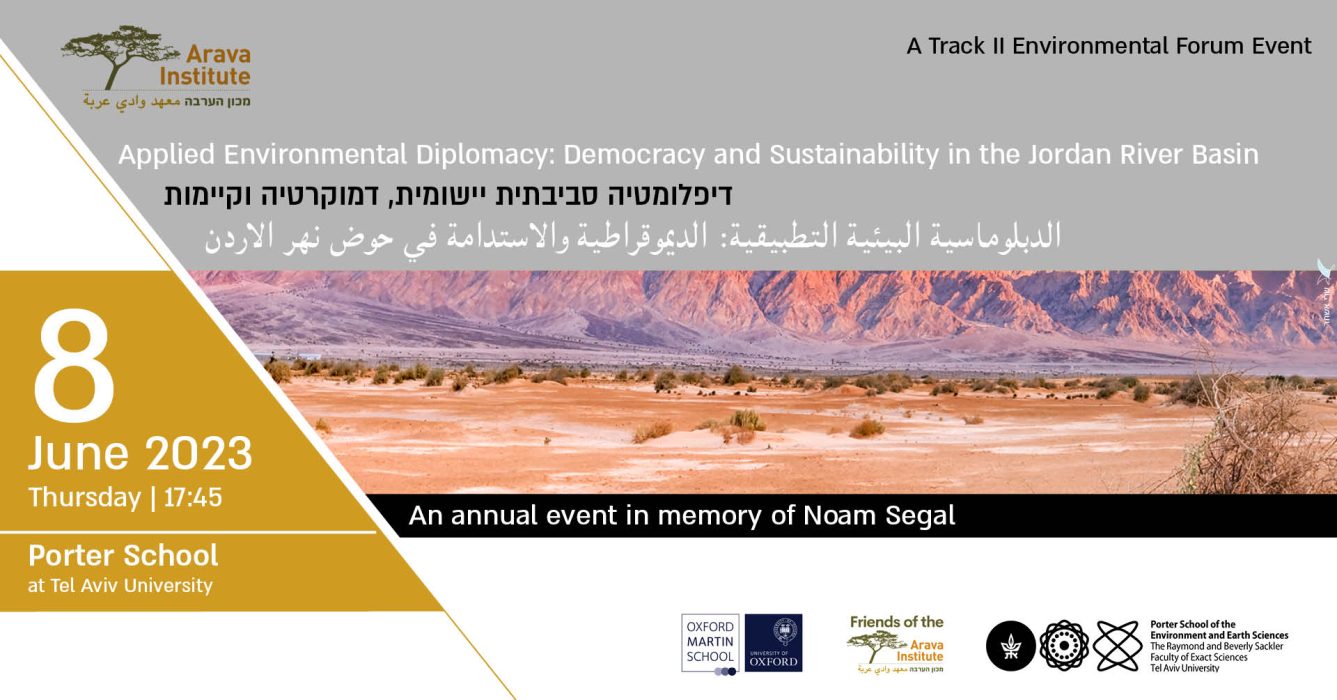
The Arava Institute and the Oxford Martin School at the University of Oxford are pleased to invite you to the second event in memory of Noam Segal. This year’s event will focus on Applied Environmental Diplomacy: Democracy and Sustainability in the Jordan River Basin.
The conference will be live streamed on our YouTube channel.
The event will be held on June 8th, 2023, at the Porter School of Environmental Studies of Tel Aviv University. The evening will begin at 5:45pm with refreshments outside the Hall; the program will start promptly at 6:15pm and end at 8:30pm. The event will also be accessible online as a webinar. The livestream for the webinar will begin 18:15 Israel time / 11:15 am EST & 8:15 am PT.
The goal of the annual Applied Environmental Diplomacy Conference is to provide a platform for Palestinian and Israeli environmental changemakers to highlight their cross-border environmental cooperation. These efforts have been enhanced by our strategic research partnership with the Oxford Martin School of Oxford University.
The focus this year will be on Democracy and Sustainability, and the link between the two.
We would be honored to see you among our participants.
* The program will be in English.
** Paid parking will be available at the Nature Museum, 5-minute walk away.
For further questions please contact Evie Leviten-Lawton at track2ad@arava.org.
17:45 – Refreshments – Light dinner – mingling
18:15 – Opening of the event – Dr. Tareq Abu Hamed
18:20 – Words about Noam –Noam’s Father – Dr. Peretz Segal
18:25 – Panel I: The Crisis of Democracy, the Environment, and the Role of Civil Society Moderator: Ambassador Daniel Shek
Panelists:
- Dr. Dov Khenin – President’s Council on Climate Change and Change Direction
- Dr. Orli Ronen – Porter School
- Palestinian Representative
19:00 – Track II and Applied Environmental Diplomacy – Progress in the region – Dr. David Lehrer, The Arava Institute for Environmental Studies
19:05 – Short video about WaterGen machines in Gaza
19:15- Oxford Martin School – How Regional Modeling is Bridging the Gap in Knowledge and Trust – Professor Jim Hall and Dr. Michael Gilmont
19:30 – Panel II: Women, Democracy and Security
Moderator: Dr. Deborah Sandler
Panelists:
- Palestinian Representative
- Sally Abed – Standing Together
Dr Maya Negev University of Haifa
20:00 – Keynote Speaker – Ambassador Dennis Ross – Introduced by Dr. Shaddad Attili
Looking Ahead: The Crisis of Democracy, Challenges and Opportunities for the Region
20:30 Closing remarks – Dr. Tareq Abu Hamed
20:35 – End of the Event
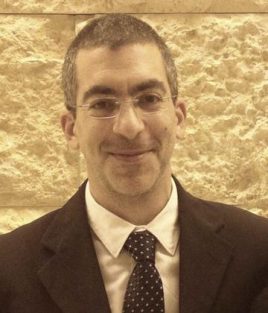
Noam joined the Institute for Science, Innovation and Society (InSIS) in September 2017. He came to Oxford to continue his work on the Water-Energy Nexus in the Middle East, focusing on Jordan, Israel and Palestine, exploring strategies for sustainable and renewable energy policy in the region. Prior to coming to Oxford Noam served as Director of the Israel Energy Forum, which he co-founded in 2008. Leading a coalition of stakeholders through advocacy and an appeal to the Israeli Supreme Court, the Forum was instrumental to reshaping Israel’s policy towards exploitation of its natural gas resources. Noam pioneered programs to retrofit energy efficiency in public housing in Israel. He also carried out ground-breaking research into Israeli’s renewable energy capacity, creating a powerful rationale for further investment and development in renewable energy infrastructure in the country and the region.
Noam studied philosophy and biology and Tel Aviv University, with a graduate degree in environmental studies at Ben Gurion University, and was near completion of his PhD from Tel Aviv University at the time of his passing. By the time he arrived at Oxford in 2017, Noam had established a close collaboration with the Track II Environmental Forum of the Arava Institute for Environmental Studies, working to develop a regional environmental blueprint for cooperation in conflict areas including the Jordan Basin. In many ways this represented a convergence of his previous research and political experience, upscaled to a regional platform with the potential to impact not just the Middle East but other resource-stressed areas of the world. His efforts were prodigious. With his characteristic quiet confidence, he gently pushed for the highest standards of professionalism amongst his colleagues, driven by his passionate belief in the value of peace as an agent to realise environmental resilience and human potential.
At Oxford he recruited an outstanding team of scholars into a new program of work straddling environmental and political science, with the aim of supporting efforts across the Middle East to improve natural resource management and deepen our understanding of the interaction of scientific and policy processes. His last few months of work were spent leading the writing of a major multi-year grant application to the Oxford Martin School. He received news that the application had been successful the week he was admitted to hospital.
Noam’s professional achievements were underpinned by a set of very special personal traits. He was kind, gentle, profoundly empathic and caring. At the same time, he was brilliant, strong and insightful. He always gave wise counsel. He understood how people worked, both individually and collectively, and was highly successful in using this to build shared interests and create change at all scales, from the personal to the international.
Above all, Noam was characterised by his humanity, anchored by his deep love and respect for his wife Vered and his children. He derived so much joy and pride in his family, and was a wonderful model of how to juggle work and family – family came first, work second, sleep third! Conference calls in recent months were often accompanied by the sounds of his baby son Amit in the background, with the level of infant contentedness frequently inversely correlated to the length of the meeting!
Noam has touched and will continue to touch so many of us within his immediate personal and professional community and beyond. His loss is incalculable to his family and to the policy and research communities he leaves behind. We will remember and miss him. His spirit and values will be with his family and many friends and colleagues as we continue to strive to realise the goals he imbued in so many.
Noam Segal, husband, father, friend, scholar, died in Oxford. He leaves a wife and three children. He will be deeply missed by his family and his many colleagues and friends around the world.
The Oxford Martin Program offers a unique way of re-analysing current and future resource supply and demand in the Jordan Basin region and beyond. It combines official data, with regional expertise and understand of resource systems and a Track II engagement and deliberation process to both build credible understanding of current and future resource needs, and plan out future politically credible resource and infrastructure options. We are developing two streams of analysis, one for water systems and one for energy, and for each, we will derive a suite of economically, technically and politically feasible scenarios. We will also be combining our analysis into a water-energy nexus framework allowing further refinement of proposals.
The first stage of our analysis demonstrates the constraints on water and energy capacity to 2030 and beyond. It evaluates the challenges both at national scales (for Israel, Jordan and the Palestinian West Bank and Gaza), and at the regional scale, demonstrate the alternate capacity and investment requirements between these two scales, and the comparative resilience and climate impact offered by a regional approach as opposed to nationally-based development.
Importantly the initial solution pathways proposed can be developed at the national scale, while also laying the groundwork for potential future closer regional integration as political conditions evolve. Such least-regrets interventions offer an important new solution space as the region seeks to increase resource security into the middle of the 20th century.
Our analysis examines future regional energy needs at the hourly basis, demonstrating both total power requirements and peak loads for which national grids will need to provide. Through a comparative analysis of national vs regional solutions, our work demonstrates the lower capital investment costs required in a regional scenario, and the increase capacity for assimilating renewables through storage and load-sharing across neighbours. For water, sharing regional best practice and technology around treated wastewater, as well as co-dependence on new water resources offers important pathways to bridge anticipated and potential unanticipated deficits in regional supply by 2030, while reducing energy intensity of new resources and environmental pollution of untreated wastewater. Further analysis currently in progress will identify how progress can be initiated at the local-scale through demonstrable projects, as a means of both contributing to resource security, illustrating how political impasses can be overcome, and in so doing building social and political trust.
Israel, Jordan and Palestine are among the most water-scarce jurisdictions in the world, with naturally available water resources well below the absolute level of water scarcity of 500m3/capita/year. Despite world-leading achievements in water management including non-conventional resources of desalination and Treated Wastewater (TWW) reuse, especially in Israel and to an extent in Jordan, there is a significant deficit between planned water availability and planned demand at the regional scale by 2030. These trends will only be magnified by the impact of Climate Change which itself is not thoroughly incorporated into regional planning, and will compound the challenge to the environmental, developmental and political prosperity of the region. This work seeks to examine how a regional approach to water management, through both resource sharing and sharing of best practice and management/allocation approaches, could help bridge the anticipated deficit, including the environmental benefits of different instruments. It provides a review of the often diverse assessments of available water resources in the region, delivers a systematic cross-regional comparison of recent and future water supply and demand, and quantifies the 2030 deficit. Building on these official projects for future supply and demand, the analysis covers a number of instruments that could be deployed to redress this deficit at the regional scale. These instruments include on water sharing augmented by best-practice sharing around TWW reuse, Non-revenue water (NRW) reduction, enhanced desalination, and reduced agricultural water growth. Scenarios are presented as to how these instruments can be combined to deliver a more water-secure outlook to 2030.
We gratefully acknowledge the following major donors for their generous support of the Track II Environmental Forum over the years:
The Abramson Family Foundation
The Kathryn Ames Foundation, Inc.
David Arfin and Madeline Chaleff
The Aviv Foundation
Amr Awadallah and Shirin Aly Hassan
Jeffrey Brown and Rachel Haft
David and Ora Chaiken
Ben and Shelly Chigier
Michael Cutler and Dale Rosenthal
FS Foundation
Aaron Frank and Julia Chang Frank
Lois and Larry Frank
David Frazer
Marc Friedman
Catharyn and Mike Gildesgame
Ethan Grossman and Family
Jon and Carol Harris-Shapiro
Harry Heiman and Abby Friedman
Richard Heinrich
Sheldon Kahn and Sarah Liron
Daniel and Naomi Kayne
Rick and Nancy Moskovitz
Anat Moskowitz and Jeffrey Bain
Isidore C. & Penny W. Myers Foundation Philanthropic Fund
Sylvia Neil and Dan Fischel
David and Aviva Lee-Parritz
Jon and Robin Parritz
The Selsky Foundation
Ann Stehney
Peter and Deborah Wexler

